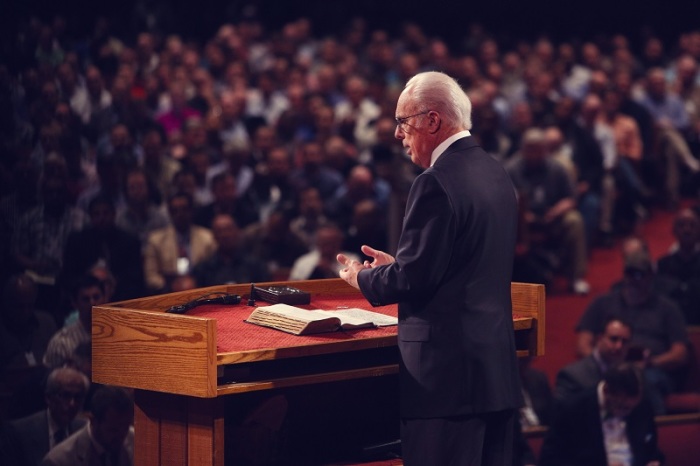John MacArthur Says He Doesn't Know Any Authentic Evangelical Church Where Racism Is a Problem

Continuing his controversial series on the social justice movement among Christians, Pastor John MacArthur says he had no idea racism was a problem in the evangelical church until the rise of the "social justice" movement four years ago.
"Four years ago, I would not have thought it possible for Bible-believing evangelicals to be divided over the issue of racism. As Christians we stand together in our affirmation of the second great commandment ('You shall love your neighbor as yourself'—Leviticus 19:18). We therefore stand together against every hint of racial animus," wrote MacArthur who leads Grace Community Church in California, as well as The Master's College and Seminary, on Monday.
While admitting that racism is a "stain on American history" with lingering vestiges, MacArthur argues that civil rights legislation now guards equal rights for all Americans.
He says while he can understand why those in secular culture will seek to fight racism under the banner of social justice, he sees no reason for evangelicals to take up that cause because he has never seen racism as a problem in any authentic evangelical church.
"I understand when fallen, worldly people filled with resentment lash out at others that way. I don't understand why Bible-believing Christians would take up that cause. I thought the evangelical church was living out true unity in Christ without regard for race," MacArthur said.
"That has certainly been my experience in every church I've ever been part of, and it's also what I have seen in the wider evangelical world. I don't know of any authentically evangelical church where people would be excluded or even disrespected because of their ethnicity or skin color," he continued.
He went on to highlight the diversity record of his church.
"Just last Sunday night—as we do every month—we received about a hundred new members into Grace Church. It was another testimony to God's love crossing all ethnic lines, as the group was composed of Hispanics, Filipinos, Chinese, Ugandans, Nigerians, Mongolians, Koreans, Ukrainians, Armenians, Lithuanians, Russians, Austrians, people of Arabic descent, as well as black and white Americans," he said.
"As Christians we are reconciled with God and united with Christ. To understand that doctrine is to be reconciled with one another. This is a major emphasis in all the Bible's teaching about forgiving one another as God has forgiven us. Christians should not be the ones dividing over race in a racially charged environment. We are the peacemakers and the lovers of all men. We don't seek vengeance. We forgive seventy times seven," he said.
In his previous post, MacArthur, who has called the social justice movement a threat to the Gospel, contended that embracing the movement reflects a church "completely ensnared in efforts to please the culture."
"'Social justice' (in the world's usage of that term) entails political ideas that are deemed sophisticated — namely, identity politics, critical race theory, the redistribution of wealth, and other radical or socialist policies. Those ideas were first popularized and propagated in the secular academy, where they are now regarded as received wisdom and have become a dominating part of popular culture. Evangelicals who are chasing the culture are latecomers to the party of those who advocate 'social justice,'" MacArthur wrote.





























